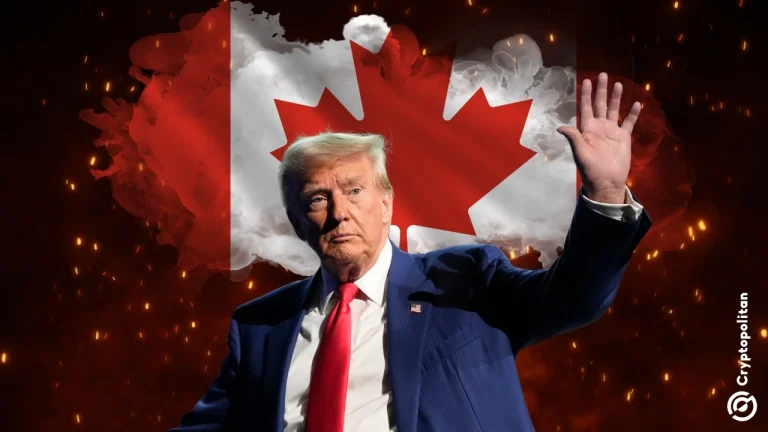Key Takeaways
- The Senate has voted to block President Trump’s tariffs on Canadian exports and will consider broader global tariffs.
- Several Republicans joined Democrats in opposing the tariffs, citing economic harm and questioning justifications.
- President Trump ended trade talks with Canada after a provincial ad quoted Ronald Reagan speaking against tariffs.
- The House of Representatives has delayed votes on these resolutions.
Senate Challenges Trump’s Tariff Policies
The U.S. Senate has once again moved to block President Trump’s imposition of tariffs, this time focusing on duties targeted at Canadian exports. This vote, which concluded with a 50-46 tally, signifies the second instance in consecutive days where the Senate has pushed back against the president’s trade agenda.
Notably, four Republican senators—Mitch McConnell, Susan Collins, Lisa Murkowski, and Rand Paul—voted with Democrats on this measure. All four had previously supported a Tuesday resolution opposing tariffs on Brazil and had also voted against the Canada tariffs in April.
Wednesday’s vote was the second of three planned actions by the Senate this week aimed at challenging President Trump’s utilization of emergency tariff powers. A final vote concerning his broader global tariffs is scheduled for Thursday. If the current trend continues, the Senate could symbolically dismantle President Trump’s entire tariff strategy.
However, these resolutions will not gain legal standing unless the House of Representatives also takes them up. Republican leadership in the House has already postponed any votes until March, employing a procedural tactic to delay the process.
Trade Talks Collapse Amidst Reagan Ad Controversy
President Trump abruptly halted trade discussions with Canada over the weekend. This action followed an advertisement aired by a regional government in Ontario, which featured a quote from Ronald Reagan criticizing tariffs.
The advertisement, broadcast during playoff games, included a clip from a 1987 radio address by the late president. In it, Reagan stated, “The way to prosperity for all nations is rejecting protectionist legislation and promoting fair and free competition.”
💡 While Reagan’s remarks were originally made in the context of tariffs on Japan and warned against trade wars, the sentiment clearly resonated and provoked a strong reaction. President Trump quickly labeled the ad as fake and asserted that Reagan had actually supported tariffs.
Senator McConnell, however, disagreed with this interpretation. He stated on Tuesday, “The economic harms of trade wars are not the exception to history, but the rule. And no cross-eyed reading of Reagan will reveal otherwise.”
Senator McConnell also affirmed his commitment to supporting all resolutions aimed at ending emergency tariff authorities. President Trump had previously threatened to increase the existing 35% duty on Canadian goods by an additional 10%, a threat that has not yet materialized.
This threat continues to loom, despite Canadian Prime Minister Mark Carney expressing readiness to resume negotiations. Before the talks broke down, Carney indicated that considerable progress had been made on issues such as steel, aluminum, and energy tariffs.
Divisions Emerge Over Tariff Justifications
Not all Republican senators supported the effort to nullify the tariffs on Canada. Senator Thom Tillis of North Carolina voted in favor of maintaining these tariffs, a stance he did not take on the previous day’s vote against the Brazil tariffs.
“The Brazil tariff is very different,” Tillis explained. “It appeared to center on a disagreement that had nothing to do with business or trade.”
📍 Senator Susan Collins, representing a border state, highlighted the direct negative impact she has observed from the tariffs. “I’ve seen firsthand the damage that the Canadian tariffs have caused,” she commented to reporters.
“I also believe the Canadians have worked very hard to try to stem the flow of drugs into this country… the vast majority of drugs arrive from the southern border, not the northern border. So I don’t think the basis for imposing tariffs on Canada is a valid one.”
Senator Collins was joined by Senators Murkowski and Paul, who also co-sponsored the resolution. This group of GOP senators was the same coalition that allied with Democrats to block the Brazil resolution just a day prior.
Final Thoughts
The Senate’s recent votes indicate a significant challenge to President Trump’s tariff policies, particularly concerning Canada and Brazil. While symbolic, these resolutions highlight a growing bipartisan concern over the economic consequences of trade disputes and the use of emergency tariff powers.
The potential for further legislative action remains, though the outcome in the House of Representatives is uncertain. The situation underscores the ongoing debate surrounding trade strategy and its impact on international relations.

